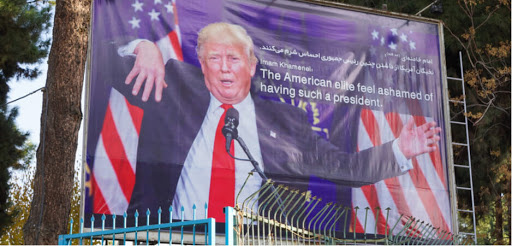On the United States Failed Strategy on Iran

US Secretary of State Mike Pompeo claimed in a recent TV interview that there was a "scientific consensus" about the origins of Covid-19 in a Chinese lab. when asked about his opinion of the US intelligence report that said there was no evidence to corroborate this allegation, Pompeo concurred with that conclusion as well, thus indicating the basic malady of an administration that is 'fact-free' and has no qualm about contradicting itself.
Hence, it is hardly surprising that this cavalier attitude about truth in fact permeates the entire edifice of US's policy toward Iran. Keen on preventing the lifting of UN sanctions on Iran's conventional arms come this fall, the Trump administration has indeed excelled itself in the art of hypocrisy by falsely claiming that it continues to be a participant in the Iran nuclear deal (i.e, the JCPOA), flatly denied by Iran's foreign ministry's letter to UN Secretary General, which cites the numerous instances of the Trump administration's violations of UNSC 2231, which authorizes the JCPOA on a global scale.
As discussed in our latest book, Trump and Iran: From Containment to Confrontation (Lexington Books, 2019), which has incidentally received a positive review in Foreign Affairs Magazine (May/June 2020), the UN's endorsement of the JCPOA has turned a political document into a veritable international agreement incumbent on the UN member states including the US government, which has now rescinded all the nuclear-related waivers as its latest manifestation of hostility toward Iran.
As a result, the only remaining sanctions waivers on US's part remain the ones pertaining to Iraq's energy imports from Iran and the one on Chabahar, as a concession to India, although so far New Delhi has failed to take advantage of that loophole, thus casting a dark shadow on the future of Iran-India relations.
Meanwhile, however, the US-imposed sanctions regime is beginning to crumble before our eyes, spectacularly demonstrated in Iran's open defiance of US sanctions on Venezuela by dispatching its oil tankers to the South American country reeling under the unjust US pressure. Faced by a common western superpower foe, the bonds of solidarity between Iran and Venezuela (as well as Cuba) are growing, thereby extending the "axis of resistance" to the northern hemisphere, this at a time when pandemic-hit US is experiencing a monumental economic meltdown that, in the end, may turn out to be substantially worse than the Great Depression. As a result, the American hegemonic power is in the midst of a historic decline that, certainly, is beneficial to various countries around the world subjected to the painful inflictions of this hegemony. In turn, this opens up a unique historical space for global anti-hegemony, to liberate the yoke of American coercive sanctions bearing so heavily on countries such as Iran, Venezuela, Cuba, and North Korea.
With the unlikely prospect of US overcoming the devastating economic blows of coronavirus any time soon, forcibly turning inward, the external power projections of American power are also unlikely to sustain the past pattern of global conduct, which has resulted in so many instances of transgression of international law. This is not to suggest that the rogue behavior US power will necessarily change, yet there is no doubt that the pandemic poses a serious challenge to sustained US hegemony, reducing its ability to reach its objectives vis-à-vis Iran, among others. A weakened US is, in other words, less capable of enforcing its unilateral sanctions regime, and, on the whole, less inclined to clinch a victory in its relentless confrontational approach, which has brought the two countries to the brink of war. There is, indeed, a direct correlation between the pandemic and US's war-making capability, which is much reduced due to, among other things, the spread of virus among the US armed forces. A depressed US economy can now ill-afford a costly war in the Middle East, which in essence means that US's leverage with respect to Iran is being much reduced for the foreseeable future.
Looking through the darkly glass, one can only hope that the US government reconsiders its unwise (anti-diplomacy) approach toward Iran and charts a different map of action that is not infected with the delusions of regime change and the like, but rather with the protean value of smart diplomacy.

